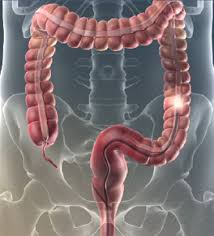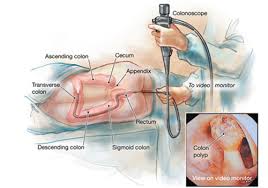



The dedicated Pawar Multispeciality Hospital is one of the best hospitals in Pune for Colonoscopy Surgery. The hospital conducts various Colonoscopy Surgeries.
Colonoscopy is a procedure that enables an examiner (usually a gastroenterologist) to evaluate the inside of the colon (large intestine or large bowel).
The colonoscope is a four-foot long, flexible tube about the thickness of a finger with a camera and a source of light at its tip.
The tip of the colonoscope is inserted into the anus and then is advanced slowly, under visual control, into the rectum and through the colon usually as far as the cecum, which is the first part of the colon.
Colonoscopy may be done for a variety of reasons. The vast majority of colonoscopies are performs as part of screening programs for colon cancer. When done for other reasons, it is most often done to investigate the cause of blood in the stool, abdominal pain, diarrhea, a change in bowel habit, or an abnormality found on colonic X-rays or a computerized axial tomography (CT) scan.
Individuals with a previous history of polyps or colon cancer and certain individuals with a family history of some types of non-colonic cancers or colonic problems that may be associated with colon cancer (such as ulcerative colitis and colonic polyps) may be advised to have periodic colonoscopies because their risks are greater for polyps or colon cancer.
How often should one undergo colonoscopy depends on the degree of the risk and the abnormalities found at previous colonoscopies. One widely accepted recommendation has been that even healthy people at normal risk for colon cancer should undergo colonoscopy at age 50 and every 10 years thereafter, for the purpose of removing colonic polyps before they become cancerous.

If the procedure is to be complete and accurate, the colon must be completely cleaned, and there are several different colonoscopy preparations. Patients are given detailed instructions about the cleansing preparation. In general, this consists of drinking a large volume of a special cleansing solution or several days of a clear liquid diet and laxatives or enemas prior to the examination.
These instructions should be followed exactly as prescribed or the procedure may be unsatisfactory (visualization of the lining of the colon may be obscured by residual stool), and it may have to be repeated, or a less accurate alternative test may be performed in its place.
Instructions may also be given to avoid certain foods for a couple of days prior to the procedure, such as stringy foods, foods with seeds, or red Jello.
Most medications should be continued as usual, but some may interfere with the examination. It is best if the colonoscopist is informed of all current prescription and over-the-counter medications. Aspirin products, blood thinners such as warfarin (Coumadin), arthritis medications, insulin, and iron preparations are examples of medications that may require special instructions. The colonoscopist will also want to be aware of a patient's allergies and any other major illnesses. The colonoscopist should be alerted if, in the past, patients have required antibiotics prior to surgical or dental procedures to prevent infections.

If an abnormal area needs to be better evaluated, a biopsy forceps can be passed through a channel in the colonoscope and a biopsy (a sample of the tissue) can be obtained. The biopsy is submitted to the pathology laboratory for examination under a microscope by a pathologist.
If infection is suspected, a biopsy may be obtained for culturing of bacteria (and occasionally viruses or fungus) or examination under the microscope for parasites. If colonoscopy is performed because of bleeding, the site of bleeding can be identified, samples of tissue obtained (if necessary), and the bleeding controlled by several means. Should there be polyps, (benign growths that can become cancerous) they almost always can be removed through the colonoscope.
Removal of these polyps is an important method of preventing colorectal cancer, although the great majority of polyps are benign and do not become cancerous. None of these additional procedures typically produce pain. Biopsies are taken for many reasons and do not necessarily mean that cancer is suspected.
Patients will be kept in an observation area for an hour or two post-colonoscopy until the effects of medications that have been given adequately wear off. If patients have been given sedatives before or during colonoscopy, they may not drive, even if they feel alert. Someone else must drive them home. The patient's reflexes and judgment may be impaired for the rest of the day, making it unsafe to drive, operate machinery, or make important decisions. Should patients have some cramping or bloating, this can be relieved quickly with the passage of gas, and they should be able to eat upon returning home. After the removal of polyps or certain other manipulations, the diet or activities of patients may be restricted for a brief period of time.
Prior to the patient's departure from the coloscopic unit, the findings can be discussed with the patient. However, at times, a definitive diagnosis may have to wait for a microscopic analysis of biopsy specimens, which usually takes a few days.